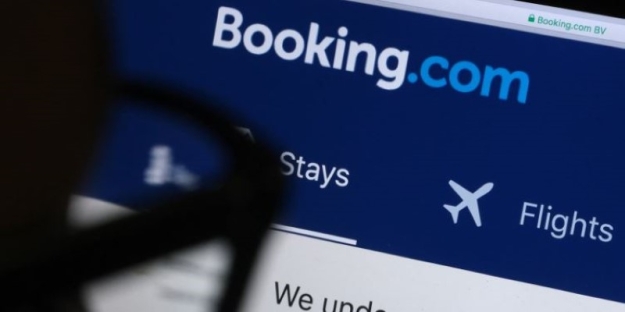Are Boutique Hotels Worth It? Your Guide To Booking
Boutique hotels are often described as stylish, intimate, and full of personality—but do they actually offer more value than chain hotels? Whether you’re planning a city break, a honeymoon, or a work trip, the choice between boutique and standard hotels can affect your budget, comfort, and overall travel experience. This guide breaks down what boutique hotels really offer, how much they cost, and how to know if they’re right for you.
What Makes A Hotel “Boutique”?
Boutique hotels are typically smaller properties, usually between 20 and 100 rooms. Instead of standardized designs, they focus on unique décor, personalized service, and a strong sense of place.
Here’s what often sets them apart:
- Design-Forward Spaces – Interiors often reflect local culture, history, or a distinctive theme.
- Personalized Service – Staff-to-guest ratios are usually higher, which means more tailored attention.
- Prime Locations – Many boutique hotels are in central neighborhoods, historic districts, or scenic spots.
- Unique Dining – Restaurants often feature local cuisine, seasonal menus, or partnerships with local chefs.
Boutique Vs. Chain Hotels: What’s The Difference?

When deciding if a boutique hotel is worth it, compare it to chain hotels in the same city or destination.
Advantages Of Boutique Hotels
- Character and Style – No two boutique hotels look alike.
- Local Flavor – Often integrates local culture, art, and cuisine.
- Quiet Atmosphere – Smaller size means fewer crowds and more privacy.
- Tailored Service – Staff may remember your name, preferences, or travel plans.
Advantages Of Chain Hotels
- Consistency – You know what to expect (room size, amenities, check-in process).
- Loyalty Programs – Points and perks can add long-term value.
- Lower Prices in Some Markets – Budget and mid-range chains often undercut boutique rates.
- Wide Availability – Easier to find in more destinations.
How Much Do Boutique Hotels Cost?
Prices vary widely depending on location, but boutique hotels are generally in the mid-to-upscale range.
- United States: Expect $180–$400 per night in cities like New York, San Francisco, or Miami.
- Europe: Rates often start around €150 and go up to €350 per night in Paris, Rome, or Barcelona.
- Asia: Boutique hotels can be more affordable—$100–$250 in Bangkok, Bali, or Hanoi.
Compared to chain hotels, boutique properties may cost 20–40% more in the same area. That said, deals are often available on booking sites, and off-season rates can be competitive.
When A Boutique Hotel Is Worth It
A boutique hotel is often the better choice if:
- You’re celebrating a special occasion – a honeymoon, an anniversary, or a birthday- that feels more personal.
- You value design and atmosphere – If aesthetics matter, boutique properties deliver.
- You want to experience local culture – From locally sourced food to art-filled lobbies.
- You prefer quieter stays – Fewer rooms mean fewer crowds and more peace.
- You want personalized service – Staff may offer tailored itineraries or neighborhood tips.
When A Chain Hotel Is The Smarter Option
A chain hotel might be better if:
- You need predictable pricing – Budget and mid-tier chains keep costs lower.
- You’re focused on rewards – Loyalty points add value for frequent travelers.
- You’re on a business trip – Conference rooms, fast check-in, and standard amenities help.
- You’re traveling with kids – Larger chains often provide family-friendly facilities, such as pools and kids' clubs.
- You want 24/7 convenience – Larger staff and round-the-clock services are standard.
Best Destinations For Boutique Hotels
Some destinations are known for boutique hotel culture. If you’re visiting these places, boutique hotels can be the highlight of your trip:
Paris, France – Chic boutique stays in the Marais or Saint-Germain-des-Prés, often set in historic buildings with stylish interiors and cozy courtyards.
New York City, USA – Trendy hotels in SoHo, Williamsburg, and the Lower East Side, featuring bold designs, rooftop bars, and art-inspired spaces.
Bali, Indonesia – Affordable boutique resorts in Ubud and Seminyak, offering private villas, lush gardens, and wellness-focused experiences.
Barcelona, Spain – Modernist-inspired boutique hotels near the Gothic Quarter, blending artistic design with central locations.
Kyoto, Japan – Boutique ryokans that combine traditional tatami rooms and kaiseki dining with modern comforts for cultural immersion.
What To Look For When Booking?
When browsing boutique hotels, check for these details before reserving:
Room Size – Some boutique hotels focus heavily on design and atmosphere, which means the rooms may be smaller than expected. Always check the square footage before booking, especially if you’re traveling with family or need extra space.
Amenities – Unlike large chain hotels, boutique properties may not include pools, gyms, or 24/7 room service. If certain facilities are important to you, confirm what’s available in advance.
Reviews – Guest feedback is one of the best indicators of quality. Look for consistent comments on cleanliness, staff friendliness, and reliability of services.
Location – Many boutique hotels are in trendy or historic districts, but that doesn’t always mean easy access to transport. Make sure you’re close enough to public transit, attractions, or dining options that matter to your trip.
Booking Flexibility – Independent hotels may have stricter cancellation policies. Always review the terms for refunds, rescheduling, or changes.
Booking Tips For Getting The Best Deal

Use Booking Platforms
Start by comparing prices across popular sites like Booking.com, Hotels.com, Expedia, Agoda, and Priceline. These platforms often highlight exclusive discounts or bundle deals with flights and car rentals. For travelers in Asia, Trip.com can be particularly useful, while Lastminute.com sometimes lists flash sales for European stays.
Check the Hotel’s Own Website
Don’t stop at third-party platforms. Many boutique hotels provide added perks for direct bookings, such as free breakfast, welcome drinks, room upgrades, or flexible cancellation policies. Some also run loyalty programs with future stay credits.
Book Early for Popular Cities
Cities like Paris, New York, or Barcelona have boutique hotels that sell out months in advance. Booking early not only guarantees availability but often locks in lower rates.
Travel in the Off-Season
Consider visiting during shoulder seasons like spring or autumn. Prices tend to drop by 20–40%, and you’ll also enjoy smaller crowds at popular attractions.
Sign Up for Newsletters
Many boutique hotels and booking platforms share exclusive offers with subscribers, including limited-time discounts or early access to promotions. Following hotels on social media can also alert you to flash sales.
Use Deal-Finding Tools
Apps like Hopper, Trivago, and Kayak compare prices across multiple sources and predict when rates are likely to drop, helping you book at the right moment.
Boutique Hotel Chains Worth Considering
While most boutique hotels are independent, some small chains combine individuality with consistency:
Kimpton Hotels – A pioneer in the boutique space, Kimpton is recognized for its bold, creative interiors and guest-focused touches, such as evening wine hours and a welcoming pet-friendly policy. Each property reflects the spirit of its location while maintaining a familiar sense of comfort.
Ace Hotel – With a youthful, artistic edge, Ace Hotels are popular among creative travelers and digital nomads. Their properties often feature communal spaces, curated art, and live events, making them hubs for culture and nightlife.
The Standard – Known for sleek, modern design, The Standard combines trendy interiors with lively social atmospheres. Many of their hotels host rooftop bars, pool lounges, and events, appealing to both leisure and business travelers.
Belmond – Positioned in the luxury segment, Belmond offers boutique resorts and hotels worldwide, often in iconic or scenic destinations. Guests can expect refined service, gourmet dining, and unforgettable experiences.
CitizenM – A more affordable yet stylish option, CitizenM emphasizes smart technology, compact but well-designed rooms, and vibrant common areas. Perfect for modern travelers who value efficiency and design at a fair price.
Pros And Cons At A Glance
Pros Of Boutique Hotels
- Unique design and atmosphere
- Personal service
- Strong local identity
- Often in prime locations
Cons Of Boutique Hotels
- Higher price per night
- Limited amenities compared to large chains
- Fewer loyalty rewards
- Smaller room sizes in some cases
Key Tips Before You Book
- Compare boutique and chain hotels in the same area to see if the price difference is justified.
- Decide if you want local culture and style or predictable comfort and perks.
- Read reviews carefully, especially on service and amenities.
- Consider your purpose: a romantic trip, a work trip, or a family vacation.
Are Boutique Hotels Worth It?
Boutique hotels are worth booking if you value design, personal service, and a more memorable travel experience. They often cost more, but for special occasions or cultural trips, the premium can feel justified. If you’re more focused on loyalty points, business efficiency, or family-friendly amenities, a chain hotel may fit better.
Next step: Compare a boutique hotel in your chosen destination with a well-rated chain property. Look at price, amenities, and location side by side. Then decide whether atmosphere or consistency matters more for your trip.
Was this helpful? Share your thoughts
- Learned practical methods
- Solved my questions
- Inspired new ideas
-
![Things To Do In London With Kids 2025]() Things To Do In London With Kids 2025
Things To Do In London With Kids 2025 -
London is a city full of family-friendly adventures, making it a perfect destination for kids in 2025. From interactive museums to outdoor parks and exciting attractions, there’s something for every age and interest.
Explore More
-
![Best Hot Air Balloon Ride In Sedona: Prices & Tips 2025]() Best Hot Air Balloon Ride In Sedona: Prices & Tips 2025
Best Hot Air Balloon Ride In Sedona: Prices & Tips 2025 -
Sedona draws travellers from around the world with its stunning red rock landscapes that seem to glow under the morning sun. For those seeking an unforgettable adventure, Sedona hot air balloon rides offer a serene way to soar above these formations, providing panoramic views that ground-level hikes cannot match. This comprehensive guide explores Sedona hot air balloon rides in detail, including updated 2025 prices, leading companies, practical tips, and everything needed to plan a seamless experience.
Explore More





